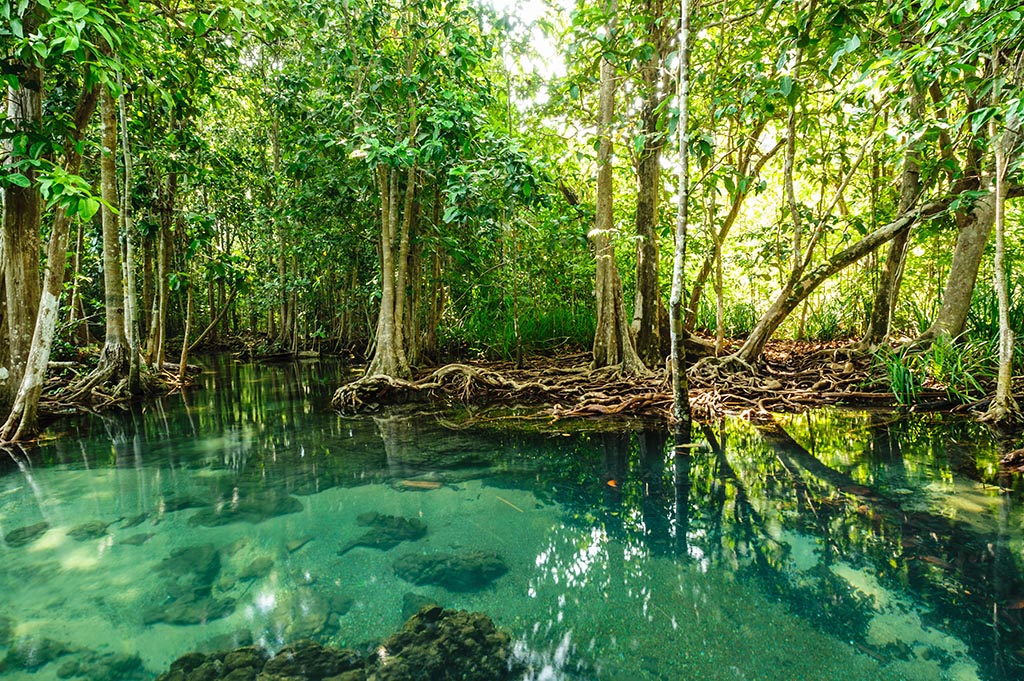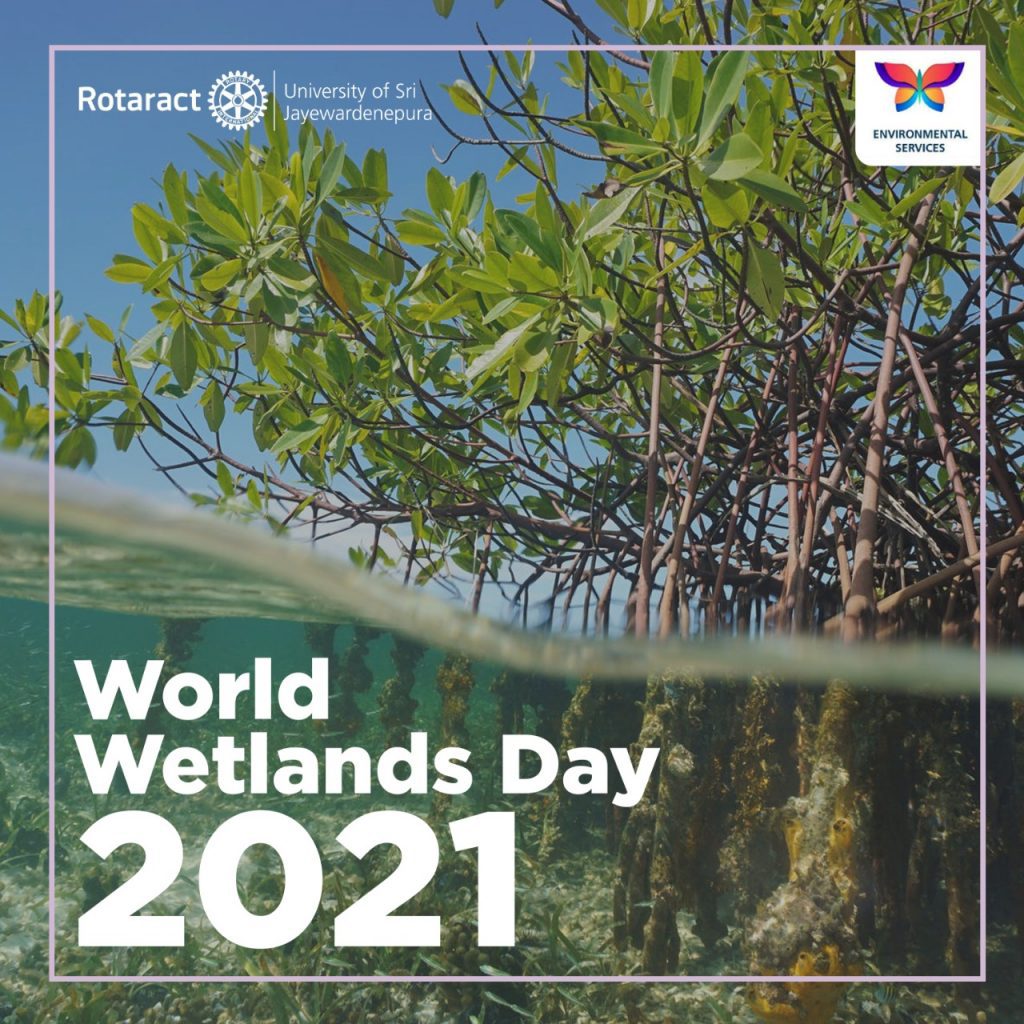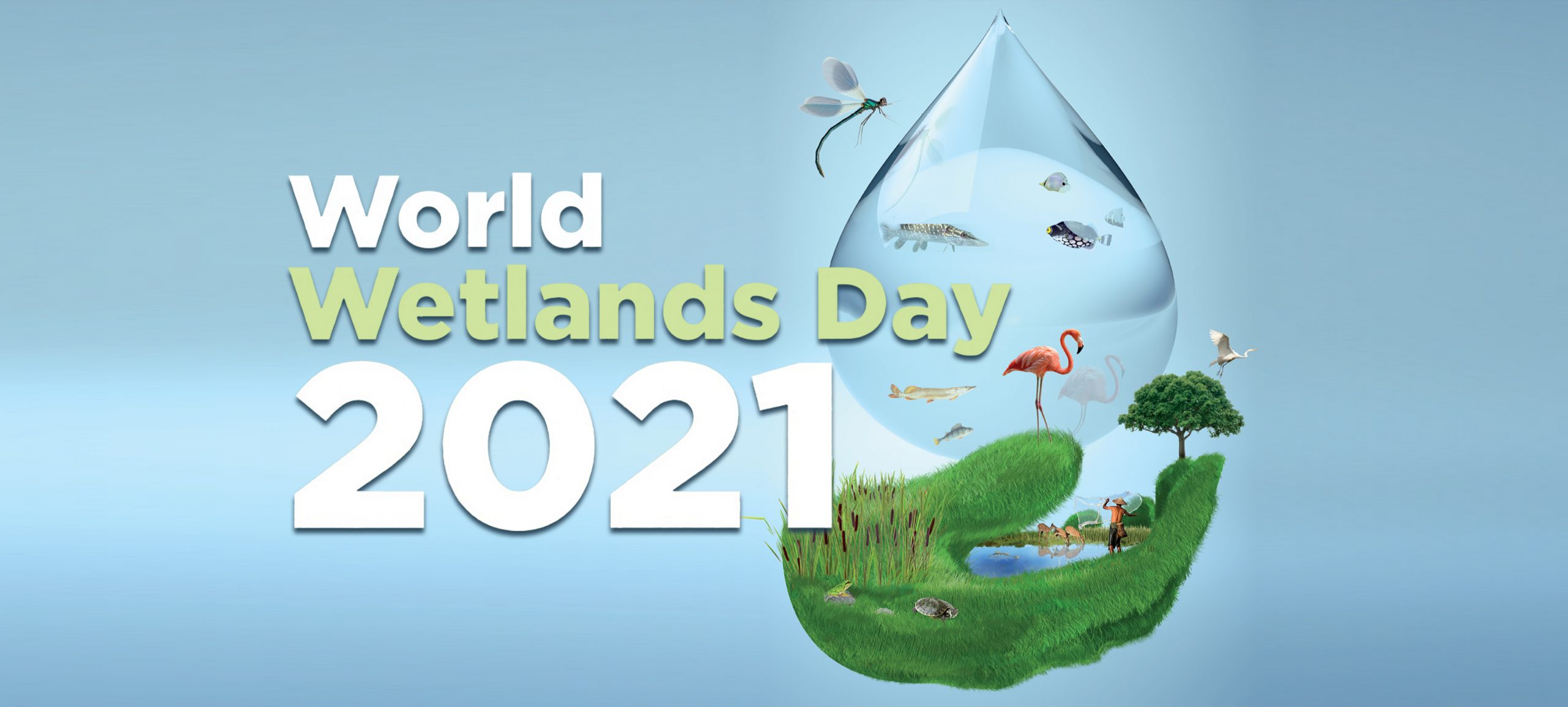The Environmental Service Avenue of the Rotaract Club of University of Sri Jayewardenepura has been dealing with various projects and campaigns concerning environmental issues throughout the years. With the new year, it has taken steps to launch a series of articles about the world Environmental days.
And the first of the series will be the World Wetlands Day 2021
World Wetlands Day 2021: Wetlands and Water
“Wetlands are incredible part of nature, found in high and low altitudes of the earth surface. In fact, they are invaluable lands. Their uniqueness requires our attention.” -Dingha Babila- Cameroon
Every year, on the 2nd of February, World Wetlands Day (WWD) is celebrated to raise global awareness about the high importance of wetlands for people and for our planet. WWD is also an occasion to commemorate the signing of the Ramsar Convention on Wetlands in the Iranian city of Ramsar in 1971. This year marks the 50th anniversary of the WWD (1971-2021). “Wetlands and water”, the theme for WWD 2021, shines a spotlight on wetlands as a source of freshwater and encourages actions to restore them and stop their loss.
Have you ever visited a wetland?
It doesn’t have to be in another country. Sri Lanka itself is a country with numerous wetlands and among them resides 6 sites which have accredited by Ramsar convention as wetlands.
What is a wetland?
A wetland is a distinct ecosystem that is flooded by water, either permanently or seasonally, where oxygen-free processes prevail, which support both aquatic and terrestrial species. The Convention on Wetlands, known as the Ramsar Convention, is an intergovernmental environmental treaty established in 1971 by UNESCO. As said, Ramsar has accredited six sites in Sri Lanka as wetland sites; Vankalai Sanctuary, Wilpattu Ramsar Wetland Cluster, Annaiwilundawa Tanks Sanctuary, Madu ganga, Bundala & Kumana Wetland Cluster.

What wetlands do?
We may underestimate the importance of wetlands but they are the ecosystem that water and all life depend on most. Wetlands provide us with freshwater, store water, provide us food and helps the economy. We are facing a growing freshwater crisis, due to over consumption, that threatens people and our planet. We use more freshwater than nature can replenish. Our act of negligence is slowly destroying this important ecosystem.
Wetlands work as a natural filter to pollutants thus provide clean water. They are known as the “kidneys of the landscape”. Also, it keeps us fed in the means of aquaculture food production and paddy fields which feed around 3.5 billion people annually. It helps the global economy as more than one billion people rely on wetlands for income. Wetlands also provide fisheries and timber resources. Wetlands provide nature a home, a habitat for biodiversity. 40% of the world’s species live and breed in wetlands.



Annually, about 200 new fish species are discovered in freshwater wetlands. Wetlands provide protection from floods and storms with each acre of wetland absorbing up to 1.5 million gallons of floodwater. Also, they help to regulate the climate; peatlands store twice as much carbon as forests, with salt marshes, mangroves, and seagrass beds also holding vast amounts of carbon. Wetlands protect coastal communities from extreme events, such as typhoons and hurricanes.
The 2021 campaign held worldwide, concerning the World Wetlands day themed Wetland and Water, highlights the contribution of wetlands to the quantity and quality of freshwater on our planet. On this World Wetlands Day, I encourage you and your friends, family to visit your nearest wetland, learn about its components, how the local communities benefit from the ecosystem and how we should protect them for a better future.

Wetlands and water, inseparable and vital for life.
By Rtr. Nethmi Ranasinghe



Very Good article ❤️❤️❤️🌴🌳🌱